简体中文
繁體中文
English
Pусский
日本語
ภาษาไทย
Tiếng Việt
Bahasa Indonesia
Español
हिन्दी
Filippiiniläinen
Français
Deutsch
Português
Türkçe
한국어
العربية
Think You’re Too Smart to Fall for an Investment Scam?!
Abstract:Investment scams are no longer the domain of obvious fraudsters and badly written emails. Today’s scams are polished, convincing, and alarmingly professional. They mimic the language and appearance of legitimate investment firms, targeting everyone from novice investors to seasoned professionals. A single mistake could wipe out years of savings. But by learning to spot the red flags early, you can protect yourself and your finances from these increasingly deceptive traps.
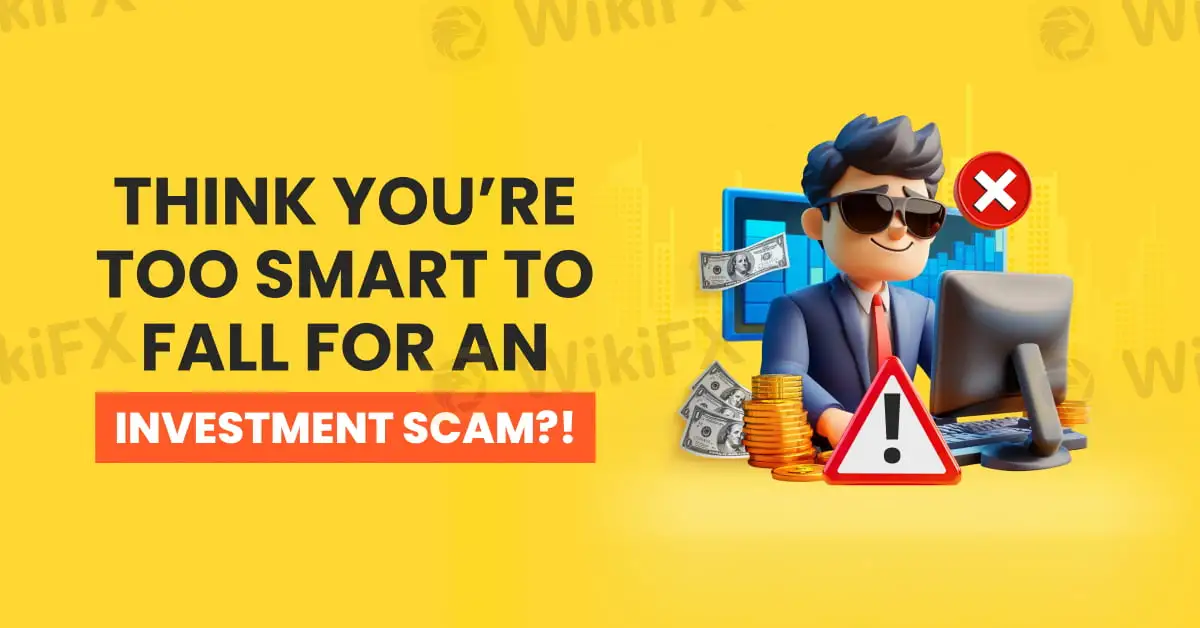
Investment scams are no longer the domain of obvious fraudsters and badly written emails. Todays scams are polished, convincing, and alarmingly professional. They mimic the language and appearance of legitimate investment firms, targeting everyone from novice investors to seasoned professionals.
The stakes are high. A single mistake could wipe out years of savings. But by learning to spot the red flags early, you can protect yourself and your finances from these increasingly deceptive traps.

If someone promises you sky-high returns, especially with phrases like “guaranteed profits” or “double your money in weeks”, alarm bells should be ringing. Fraudsters rely on greed and urgency, knowing that inflated returns are tempting. But in reality, no legitimate investment is risk-free, and high returns always carry proportionate risk.
What to do:
Compare the advertised returns with average market performance. Most long-term investments grow slowly and steadily. If a product promises more than 8–10% annually, or even monthly, with zero risk, its likely a scam. Always remember: if it sounds too good to be true, it probably is.

Scammers don‘t want you to think too much as they want your money quickly. That’s why they use high-pressure tactics such as “this offer expires today” or “we‘re only accepting a few more investors.” They’ll discourage you from taking time to do your research or speak with a financial adviser.
What to do:
Legitimate investments don‘t expire overnight. Take your time. Ask for all documentation, and don’t be afraid to walk away if you feel rushed or uncomfortable.

Many scams operate outside the reach of financial regulators. They may provide impressive-looking documents or websites, but no real oversight backs them. Some even pose as licensed firms, using cloned websites or fake registration numbers.
What to do:
In the UK, always check with the Financial Conduct Authority (FCA). Their online register allows you to verify whether a firm is authorised. If you‘re outside the UK, your country’s financial regulatory body (like the FSCA in South Africa or SEC in the US) will have similar tools. To do this in just a few clicks, download the free WikiFX mobile application that houses all the information you need of over 50,000 investment firms worldwide.


Fraudsters often hide behind technical jargon. Beware of those claiming they use “AI-powered algorithms,” “quantum trading models,” or “blockchain arbitrage.” They avoid explaining how the investment actually works and hope youll be too intimidated to ask.
What to do:
Ask for a clear, simple explanation. If they can't provide one or try to belittle you for asking, then thats a red flag. A legitimate adviser should help you understand how your money is being used.

Whether its a cold call, unsolicited email, or even a direct message on LinkedIn, scammers often pretend to be financial professionals with a unique opportunity “just for you.” They may use fake reviews, paid actors in testimonials, or even impersonate known figures to gain your trust.
What to do:
Be cautious with any investment pitch that comes to you unsolicited. Look up the company independently. Dont use any links they send. It is best to go directly to official websites and regulatory registers. And never be swayed by a glossy brochure or Instagram post of someone lounging on a yacht.

Disclaimer:
The views in this article only represent the author's personal views, and do not constitute investment advice on this platform. This platform does not guarantee the accuracy, completeness and timeliness of the information in the article, and will not be liable for any loss caused by the use of or reliance on the information in the article.
Read more
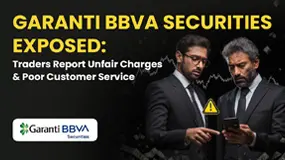
Garanti BBVA Securities Exposed: Traders Report Unfair Charges & Poor Customer Service
Have you been financially ruined through chargebacks allowed by Garanti BBVA Securities? Do you have to wait for hours to get your queries resolved by the broker’s customer support official? Did the same scenario prevail when you contact the officials in-person? Failed to close your account as Garanti BBVA Securities officials remained unresponsive to your calls? Many have expressed similar concerns while sharing the Garanti BBVA Securities review online. In this article, we have shared some complaints against the broker. Take a look!
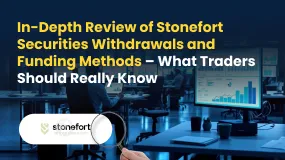
In-Depth Review of Stonefort Securities Withdrawals and Funding Methods – What Traders Should Really
For any experienced forex and CFD trader, the mechanics of moving capital are as critical as the trading strategy itself. The efficiency, security, and transparency of a broker's funding procedures form the bedrock of a trustworthy, long-term trading relationship. A broker can offer the tightest spreads and the most advanced platform, but if depositing funds is cumbersome or withdrawing profits is a battle, all other advantages become moot. This review provides a data-driven examination of Stonefort Securities withdrawals and funding methods. We will dissect the available information on payment options, processing times, associated costs, and the real-world user experience. Our analysis is anchored primarily in data from the global broker regulatory inquiry platform, WikiFX, supplemented by a critical look at publicly available information to provide a comprehensive and unbiased perspective for traders evaluating this broker.
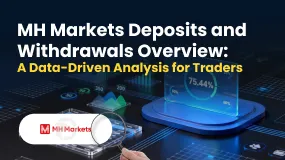
MH Markets Deposits and Withdrawals Overview: A Data-Driven Analysis for Traders
For any experienced trader, the integrity of a broker is not just measured by its spreads or platform stability, but by the efficiency and reliability of its financial plumbing. The ability to deposit and, more importantly, withdraw capital without friction is a cornerstone of trust. This review provides an in-depth, data-driven analysis of the MH Markets deposits and withdrawals overview, examining the entire fund management lifecycle—from funding methods and processing speeds to fees and potential obstacles. MH Markets, operating for 5-10 years under the name Mohicans Markets (Ltd), has established a global footprint. With a WikiFX score of 7.08/10, it positions itself as a multi-asset broker offering a range of account types and access to the popular MetaTrader platforms. However, for a discerning trader, the real test lies in the details of its payment systems and the security of their funds. This article dissects the MH Markets funding methods withdrawal experience, leveraging pr
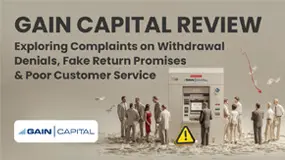
GAIN Capital Review: Exploring Complaints on Withdrawal Denials, Fake Return Promises & More
Is your forex trading experience with GAIN Capital full of financial scams? Does the broker disallow you from withdrawing your funds, including profits? Have you been scammed under the guise of higher return promises by an official? Does the GAIN Capital forex broker not have an effective customer support service for your trading queries? Concerned by this, many traders have shared negative GAIN Capital reviews online. In this article, we have discussed some of them. Read on!
WikiFX Broker
Latest News
GCash Rolls Out Virtual US Account to Cut Forex Fees for Filipinos
WikiFX's New Evaluation of ATM Capital LTD: Does its License Protect the Arab Investor?
How a Fake Moomoo Ad Led to the “New Dream Voyage 5” Scam
Is Axi Legit? A Data-Driven Analysis of Its Regulatory Standing and Trader Feedback
Trive Investigation: High Score, Hidden Risk - The Profit Paradox
In-Depth Uniglobe Markets Commission Fees and Spreads Analysis – What Traders Should Really Know
FXPesa Review: Are Traders Facing High Slippage, Fund Losses & Withdrawal Denials?
CMC Markets Australia Revenue Surges 34%, But High-Net-Worth Clients Face Tax Phishing Threat
The 350 Per Cent Promise That Cost Her RM604,000
INZO Commission Fees and Spreads Breakdown: A 2025 Data-Driven Analysis for Traders
Currency Calculator



